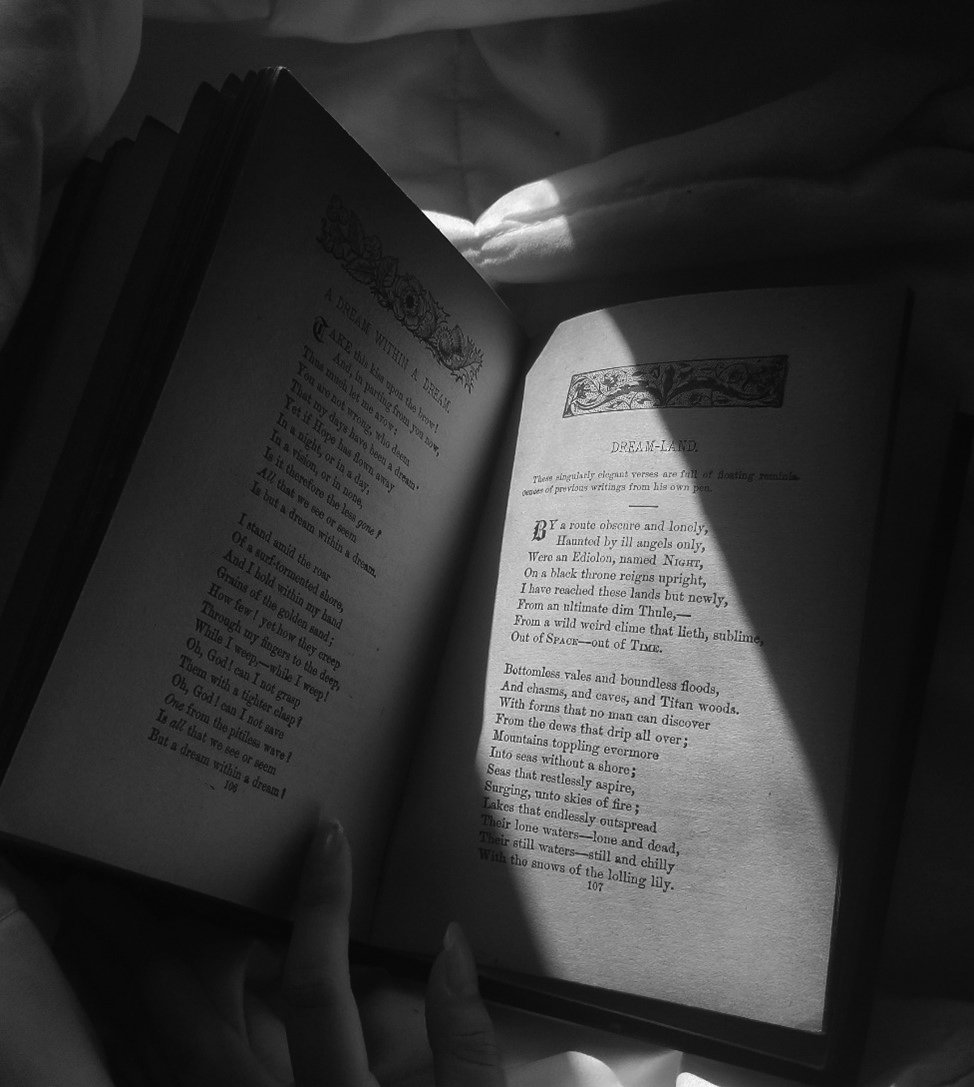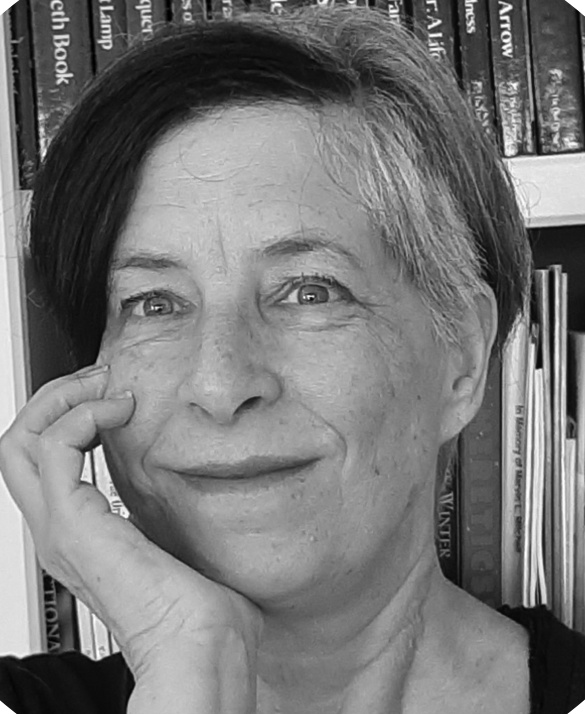Confessions of an Unschooled Poet: Learning that Some Rules are Meant to be Broken
By Amy L. Bernstein
I first composed a poem as an adult around 1986. I read it out loud to my boyfriend at the time, my whole body shaking. Sharing an original poem handwritten on a scrap of notepaper, after several hasty drafts, seemed like a subversive act. I had never felt more vulnerable or exposed than when reading those lines.
That poem did not survive and neither did the relationship. All I can recall (about the poem, not the guy) is that I used metaphors involving textiles to express something about the act of creative writing itself. I think the last line went something like, “In the end, the poem sews itself.”
After that little experiment, I did not write another poem until early in 2019—three decades on. I didn’t know how. I didn’t think I should. I didn’t feel qualified. I assumed I couldn’t simply barge into the world of poets and poetry and find a berth.
After all, as an English literature major in college, I had read tons of so-called classic fiction, from Shakespeare and Chaucer to Thackeray and Eliot. But I did not take a single poetry class (if you exclude Shakespeare) and I did not read poetry for pleasure.
Poetry struck me as an entirely separate branch of literature, off in its own corner, speaking to the cognoscenti. Either the cryptic lines yielded up their secret messages to you—invited you to decode their meaning—or they didn’t. Poetry had rules! So many rules! I knew how to write topic sentences and coherent paragraphs; I knew how to develop and support a thesis statement.
But poems snaked along the page like hieroglyphics, and I lacked the knowledge to decipher or unpack them. I didn’t know a sestina from a villanelle. I figured if I wasn’t willing to study the rules, then I couldn’t (and perhaps, shouldn’t) attempt any of the forms.
Which is not to say that I was totally immune to all of poetry’s seductive charms.
There were moments over the years when a poem (mainly from the traditional Eurocentric canon I was exposed to) briefly turned my head. “Howl” by Allen Ginsberg (I saw the best minds of my generation destroyed by madness . . .). T.S. Eliot’s “The Love Song of J. Alfred Prufrock” (In the room the women come and go / Talking of Michelangelo.). Snippets of Walt Whitman (I sing the body electric—a great line in an otherwise not-so-great piece). Amiri Baraka’s chilling, incantatory “Somebody Blew Up America” (who WHO WHO . . .).
But I continued, for the most part, to hold poetry at arm’s length. I left the form to those who were perhaps more patient, more intuitive, or maybe just smarter, than I.
Then came 2019 and something shifted. Was the shift in me, as a writer finding my voice in different forms (playwrighting, novels, essays)? Was the shift occurring in the wider world, given rising levels of injustice, civil unrest, uncivil discourse? I believe it was both.
I sat down at my computer one day four years ago and recognized that a poem was the only form adequate to expressing what I needed to say, just then. I was in the grip of a mild depression, feeling raw—and feeling too much.
Paradoxically, poetry’s stringent economy of language is well suited to big emotions. Compression of form yields expansion of expression.
My subconscious must have understood that premise when I began writing poetry. I dove in because I wanted to, needed to. I cast aside self-conscious concerns about not knowing what I was doing. I wouldn’t let my lack of formal mastery get in the way of what I wanted to say.
First lines from a first poem:
Nothing is wrong with you / You are a glassine harbor on a windless day.
I wrote only free verse from then on (and still do), on the theory that I’m not equipped to compose in more formal forms. I still don’t know a sestina from a villanelle, but so what?
Now, I love making more with less; scraping words away until only the necessary ones remain; finding precisely the right metaphor to create both image and feeling. I love the look of a completed poem on the page, how the ragged lines and unpredictable line groupings keep your eyes moving and the rhythms flowing.
I love how a poem can’t be anything other than itself. Form follows function.
I’m still an uneducated poet. I don’t routinely read poetry, though I do listen to it on a semi-regular basis. I don’t expect I’ll ever grasp more about poetry as an art form than my own practice teaches me.
While others may fault me for my attitude, I’m okay with it. Writers should follow their muses, wherever they lead—or don’t lead.
The lesson I’ve learned from my late lurch into poetry, which I’d like to share with writers everywhere, is that you should always allow your creative heart to be your guide. There is no art form that is off-limits; no door that is closed to you; no club to which you may not belong as a writer, when it comes to the marriage of form and subject matter.
Even though I still hesitate to call myself a “poet,” I fully embrace the act of writing poetry. After all, the label is not what matters. In the end, it’s all about the work you create and share, in any form you dream up. Honor your calling, no matter what it’s called.
Amy L. Bernstein writes for the page, the stage, and forms in between. Her novels include The Potrero Complex, The Nighthawkers, Dreams of Song Times, and Fran, The Second Time Around. Amy’s poetry leans heavily on free-form prose poems that address psychological and political states of mind. Amy is an award-winning journalist, playwright, and certified nonfiction book coach.
Visit her website and follow her on Twitter and Instagram.
*****
Yellow Arrow Publishing is a nonprofit supporting women writers through publication and access to the literary arts. Thank you for supporting independent publishing.
You can support us as we AWAKEN in a variety of ways: purchase one of our publications from the Yellow Arrow bookstore, join our newsletter, follow us on Facebook, Instagram, or Twitter or subscribe to our YouTube channel. Donations are appreciated via PayPal (staff@yellowarrowpublishing.com), Venmo (@yellowarrowpublishing), or US mail (PO Box 102, Glen Arm, MD 21057). More than anything, messages of support through any one of our channels are greatly appreciated.

